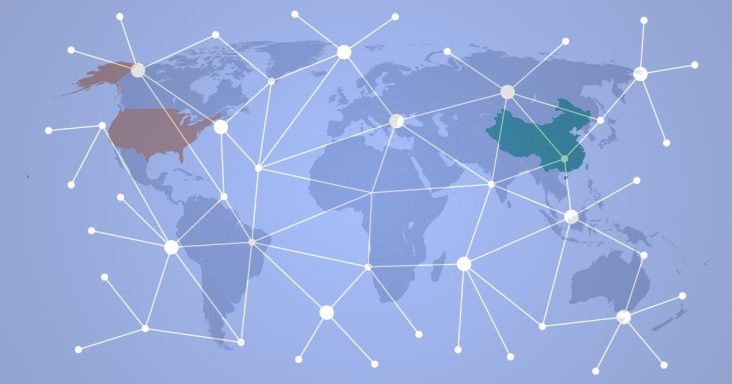U.S., China ‘battle’ for blockchain dominance
by January 20, 2020 1:45 pm 1,587 views

China is winning the intellectual property arms race against the United States, according to a group of blockchain experts.
Mary Lacity, director of the Blockchain Center of Excellence at the University of Arkansas, assistant professor Zach Steelman and two students in the information systems department at the UA, recently wrote the article, “US and China Battle for Blockchain Dominance,” for Cointelegraph.com. They wrote about the research they completed on blockchain patents in the United States and China. Blockchain technology provides for a system that can automatically initiate smart contracts or store transactions on a shared digital ledger.
Between January 2014 and October 2019, China’s patent office, the National Intellectual Property Administration, awarded 2,218 blockchain patents, the article shows. Over the same period, the U.S. Patent and Trademark Office awarded 227 blockchain patents.
The experts noted the data might be slightly misleading because China’s patent office awarded nearly 40 blockchain-related patents to U.S.-based global companies, including Goldman Sachs, IBM, Intel, JP Morgan and Microsoft. However, the U.S. patent office has yet to award blockchain-related patents to any organization based in China.
China’s patent office processes patent applications more quickly than the United States, taking six months on average from patent filing to acceptance compared to 20 months in the United States. This might be because China has more resources dedicated to the patent process or that it might not be as rigorous as it is in the United States, according to the article.
The top three categories of blockchain-related patents approved in China and the United States include computing, calculating and counting; electric communication technique; and checking-devices.
China United Network Communications Group Co., Alibaba and NChain Holdings have received the most patents from China’s patent office, while the U.S. patent office has granted the most patents to IBM, Accenture and Mastercard.
